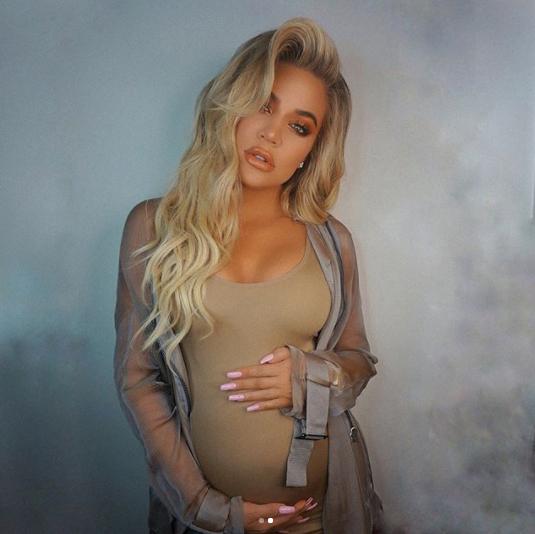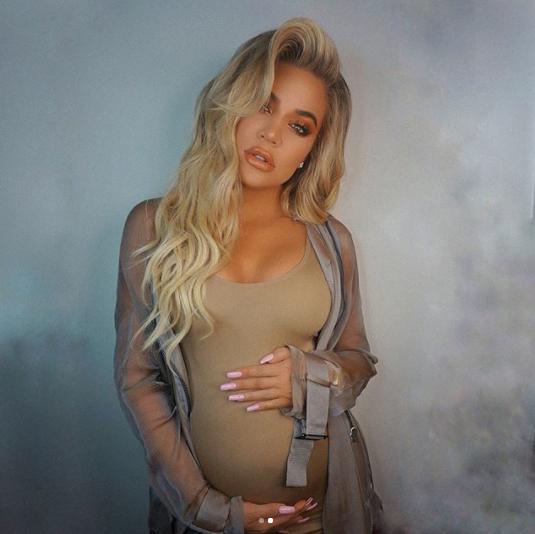Khloé Kardashian spoke out about one of her pregnancy worries in a recent episode of Keeping Up with the Kardashians.
The reality star, who welcomed her daughter True in April with NBA player Tristan Thompson, revealed to her older sister and mom of three Kim Kardashian West that she was “stressed” at having gained 11 lbs. in the first five months of pregnancy. She said she was worried that her weight gain — along with Tristan’s genes — could make the baby too big to deliver vaginally.
“The doctor and I have talked, and since Tristan and I are both big, and his mom has had c-sections because all of her kids were big, most likely I’m going to have a big baby,” she told Kardashian West in the episode that aired Sunday. “The doctor wants me to gain a reasonable amount of weight. Nothing too crazy.”
A flashback to a doctor’s appointment then showed Kardashian’s OBGYN advising her to shoot for gaining 8 lbs. in 20 weeks. “Your partner is tall and big — I’m just worried that if you gain too much weight, you’re going to have a [huge baby],” the doctor said.
Kardashian went on to tell the camera, “I would really love to avoid having a c-section. I would like to do this as naturally as possible. My whole family delivered vaginally, I just kind of want to do the same.”
But does it make medical sense for Kardashian to restrict her weight gain because the baby’s father has such a large build?
It’s overly simplistic to assume the more weight you gain and the taller your partner, the bigger your baby will be, according to Mary Jane Minkin, MD, a practicing gynecologist and professor at Yale University School of Medicine.
“Paternal size and weight will influence the size of the baby, there’s no question about it,” Dr. Minkin says. “But it doesn’t alter the guidelines on weight gain during pregnancy.”
And it’s those guidelines that matter most. The American College of Gynecologists’ guidelines for weight gain during pregnancy, which were republished this year, indicate a woman who is underweight with a BMI of less than 18.5 should gain 28 to 40 lbs., a woman of normal weight (18.5 to 24.9 BMI) should gain 25 to 35 lbs. and a woman who is overweight (25-30 BMI) should gain 15 to 25 lbs. If a woman is obese (a BMI of 30 or greater), the recommended range is 11 to 20 lbs.

Khloe Kardashian and Tristan Thompson
In addition, the amount of weight a pregnant woman gains if she’s eating well and exercising regularly will “not dramatically” affect the size of the baby, says Dr. Minkin.
What does play a role is drastic weight gain over the recommended guidelines, which increases the risk of developing gestational diabetes. This condition causes high blood sugar and can notably increase the baby’s size.
So, Dr. Minkin explains, Kardashian’s doctor may be saying something like, “You have enough risk factors for having a big baby that you don’t want to add another one.”
Kardashian’s baby girl was born on April 12, 2018 weighing 6 lbs. 13 oz.

